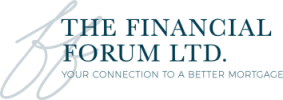Interest rates are increasing, and the mortgage stress test is lowering your ability to pay. What does a rising mortgage stress test imply for you and your homebuyer aspirations? In this article, we will review the mortgage stress test and how it influences mortgage availability.
What is a mortgage stress test?
The lender wants to be sure you can make your payments when you apply for a mortgage. One of the calculations they employ to do so is the debt service ratio, which compares your home expenses and other debts to your income. Mortgage lenders generally prefer that your gross debt service ratio (the sum of your mortgage, property taxes, condo fees, and heat) be no more than 39% and your total debt service ratio be 44% at most.
In Canada, you can’t lock in a mortgage rate for more than 5 years, so lenders also want to know if you’ll be able to make your payments in the future should rates rise. Lenders use a much higher mortgage rate than the one you’ll actually pay to calculate your debt service ratios after applying a premium mortgage rate on renewal to assess. This is known as the stress test.
Is there a relationship between the stress test and mortgage rates?
In short, yes, there is a relationship indeed. The qualifying rate you’ll be stress tested against is the higher of 5.25% or your contracted mortgage rate plus 2%. Until recently, discounted mortgage rates were low enough that almost everyone was stress tested using a qualifying rate of 5.25%, but thanks to a sharp rise in mortgage rates, more Canadians are being subjected to an even tougher stress test.
You will be stress tested against the qualifying rate that is higher than 5.25% of your contracted mortgage rate plus 2%. In case you would get a 5-year fixed mortgage at today’s best rate (3.59%), your calculated debt service ratio would be 5.59%.
Higher mortgage rates affect your ability to afford a mortgage
When you borrow at a higher interest rate, your monthly payment must rise to cover the extra cost of borrowing. As rates rise, the maximum mortgage amount you’ll be eligible for decreases as well.
Let’s presume you make $100,000 per year. If you were to maintain a maximum gross debt service ratio of 39%, your total housing cost might not exceed $3,250 every month. Assume your additional housing expenditures are $1,000 each month, leaving you with $2,250 to spend on your mortgage.
The stress test is not getting more difficult
The stress test is getting easier right now since the gap between qualifying rates and discounted mortgage rates is narrowing.
In the past, the qualifying rate has been about 2.7% higher than the rates that people actually pay. Canadians are presently qualifying at rates just 2.0% greater than what they’ll actually pay because mortgage rates have surpassed the 5.25 percent minimum for many borrowers. While the stress test is relatively easier than before, it is still tougher overall due to higher rates.
Mortgage stress testing rules are set by a regulator known as the Office of the Superintendent of Financial Institutions. The regulator reviews the policy one time per year. The next review is on December 15th, 2022, and the Office of the Superintendent of Financial Institutions could choose to raise the minimum qualifying rate to any number they see fit.
It wouldn’t seem strange for the qualifying rate to be raised to 3% above the contracted rate or even higher if rates continue to rise at the rate they have been. In that scenario, the stress test would be more difficult, and not just because rates are going up.
Should you worry about the stress test you own a home?
Yes, because the stress test does apply to new mortgages. In case you already own a home and have a mortgage and want to renew with your current lender, you will not be subjected to the stress test. The stress test will, however, apply if you wish to refinance or switch lenders.
How to maximize mortgage affordability
Increasing mortgage rates should imply a drop in home values. In reality, it’s tough to predict how long house prices will fall and by how much. Take these suggestions into account while maximizing your mortgage affordability despite the toughening stress test.
One way to maximize mortgage affordability is by raising your income. The more you wait to refinance, the more interest rates will rise. However, if you make more money, you’ll be able to get a larger mortgage. It’s sometimes just enough to have your earnings appear bigger on paper. Some lenders seem to be put off by monthly income only.
Hourly compensation, commissions, bonuses, and self-employment earnings are not as important. If you can trade these types of money for a bigger wage, it might make you appear like a more appealing candidate to the banks.
Another potentially effective strategy is to save a larger down payment. This approach lowers the amount you need to borrow and helps save money on mortgage default insurance.
You can also try to get a mortgage pre-approval. Getting pre-approved can help you shop with confidence if you’re planning to buy a house in the following three or four months. During your mortgage pre-approval application, your mortgage broker or lender will assess your financial position and promise a maximum purchase price and interest rate for up to 120 days. Rates can go down before you make your purchase, and you’ll receive a discount rate. If rates rise, you will still be accepted at the rate that was pre-approved for you.
Finally, you can consider starting with a variable-rate mortgage and converting to a fixed rate. You can start with a variable-rate mortgage if you want a fixed-rate mortgage but want to qualify for the maximum amount. With this approach, you will benefit from the lower stress test rate, and you can then convert to a fixed rate.
Conclusion
A mortgage stress test is a valuable tool for avoiding being unprepared when interest rates rise. If you can save more money and improve your earnings, it’s only for the purpose of applying for a mortgage, but it will help you prepare for a future with higher mortgage rates.
If you are ready to purchase a new home, talk to your mortgage broker about arranging for a mortgage pre-approval. This will assure you of obtaining the best mortgage rate and provide you with certainty regarding how much you can afford.





